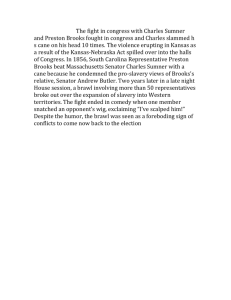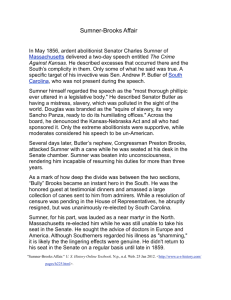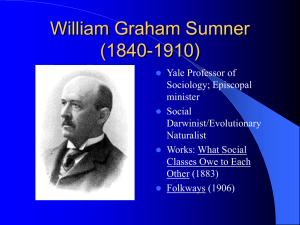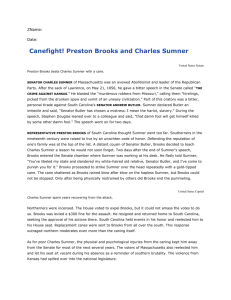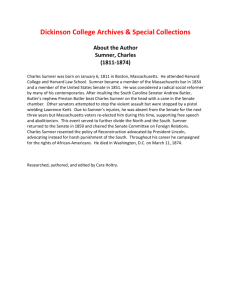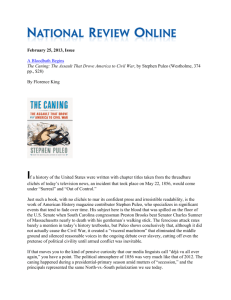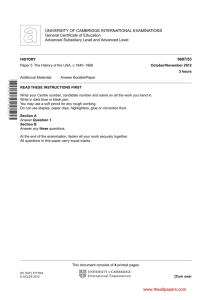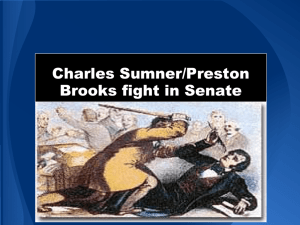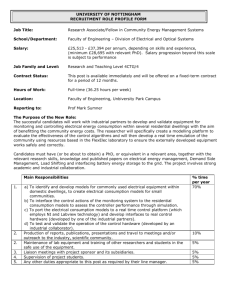File - Ms. Mazzini-Chin
advertisement
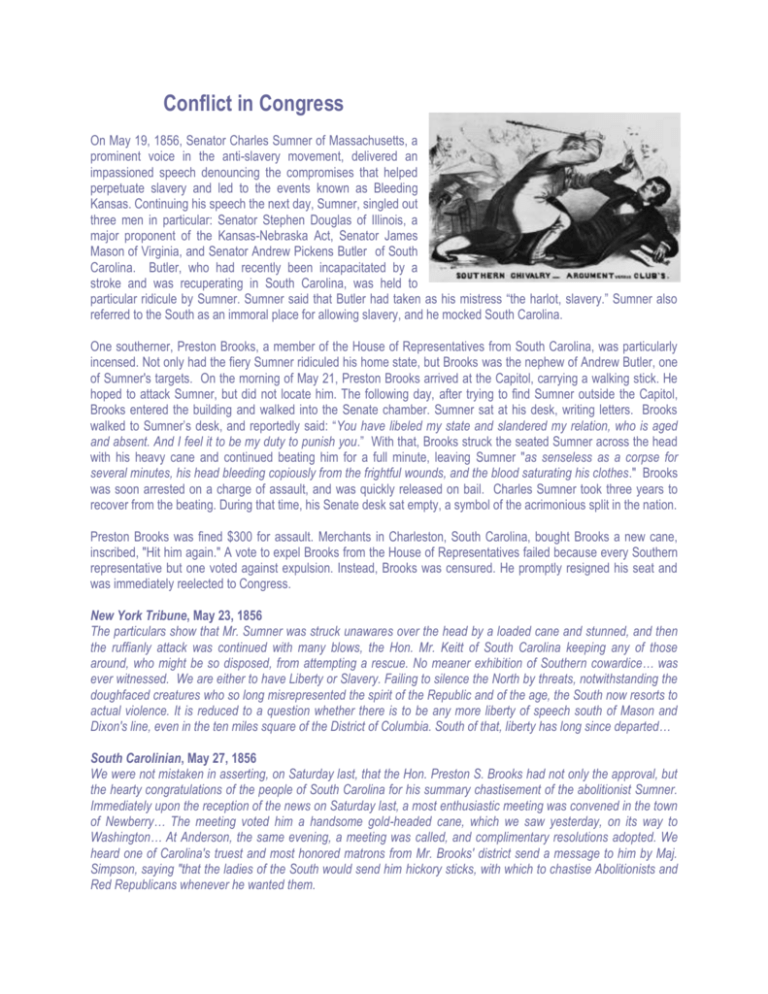
Conflict in Congress On May 19, 1856, Senator Charles Sumner of Massachusetts, a prominent voice in the anti-slavery movement, delivered an impassioned speech denouncing the compromises that helped perpetuate slavery and led to the events known as Bleeding Kansas. Continuing his speech the next day, Sumner, singled out three men in particular: Senator Stephen Douglas of Illinois, a major proponent of the Kansas-Nebraska Act, Senator James Mason of Virginia, and Senator Andrew Pickens Butler of South Carolina. Butler, who had recently been incapacitated by a stroke and was recuperating in South Carolina, was held to particular ridicule by Sumner. Sumner said that Butler had taken as his mistress “the harlot, slavery.” Sumner also referred to the South as an immoral place for allowing slavery, and he mocked South Carolina. One southerner, Preston Brooks, a member of the House of Representatives from South Carolina, was particularly incensed. Not only had the fiery Sumner ridiculed his home state, but Brooks was the nephew of Andrew Butler, one of Sumner's targets. On the morning of May 21, Preston Brooks arrived at the Capitol, carrying a walking stick. He hoped to attack Sumner, but did not locate him. The following day, after trying to find Sumner outside the Capitol, Brooks entered the building and walked into the Senate chamber. Sumner sat at his desk, writing letters. Brooks walked to Sumner’s desk, and reportedly said: “You have libeled my state and slandered my relation, who is aged and absent. And I feel it to be my duty to punish you.” With that, Brooks struck the seated Sumner across the head with his heavy cane and continued beating him for a full minute, leaving Sumner "as senseless as a corpse for several minutes, his head bleeding copiously from the frightful wounds, and the blood saturating his clothes." Brooks was soon arrested on a charge of assault, and was quickly released on bail. Charles Sumner took three years to recover from the beating. During that time, his Senate desk sat empty, a symbol of the acrimonious split in the nation. Preston Brooks was fined $300 for assault. Merchants in Charleston, South Carolina, bought Brooks a new cane, inscribed, "Hit him again." A vote to expel Brooks from the House of Representatives failed because every Southern representative but one voted against expulsion. Instead, Brooks was censured. He promptly resigned his seat and was immediately reelected to Congress. New York Tribune, May 23, 1856 The particulars show that Mr. Sumner was struck unawares over the head by a loaded cane and stunned, and then the ruffianly attack was continued with many blows, the Hon. Mr. Keitt of South Carolina keeping any of those around, who might be so disposed, from attempting a rescue. No meaner exhibition of Southern cowardice… was ever witnessed. We are either to have Liberty or Slavery. Failing to silence the North by threats, notwithstanding the doughfaced creatures who so long misrepresented the spirit of the Republic and of the age, the South now resorts to actual violence. It is reduced to a question whether there is to be any more liberty of speech south of Mason and Dixon's line, even in the ten miles square of the District of Columbia. South of that, liberty has long since departed… South Carolinian, May 27, 1856 We were not mistaken in asserting, on Saturday last, that the Hon. Preston S. Brooks had not only the approval, but the hearty congratulations of the people of South Carolina for his summary chastisement of the abolitionist Sumner. Immediately upon the reception of the news on Saturday last, a most enthusiastic meeting was convened in the town of Newberry… The meeting voted him a handsome gold-headed cane, which we saw yesterday, on its way to Washington… At Anderson, the same evening, a meeting was called, and complimentary resolutions adopted. We heard one of Carolina's truest and most honored matrons from Mr. Brooks' district send a message to him by Maj. Simpson, saying "that the ladies of the South would send him hickory sticks, with which to chastise Abolitionists and Red Republicans whenever he wanted them.
